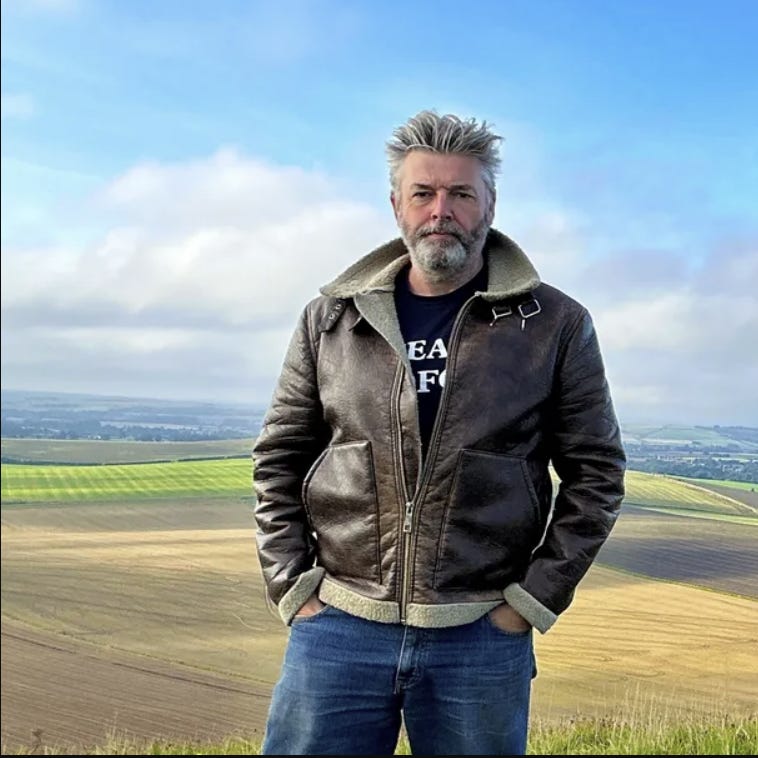Tom Radford, ruggedly handsome at 51 years old with his salt and pepper hair and leather flying jacket is, nonetheless, not an obvious candidate for a TikTok influencer. However, Tom has racked up 138,800 followers on the attention sapping Chinese platform not to mention 136,000 on Instagram too. So, what does he do to entice and entrance the hoards? He drives around England in his van and forages, finding food from the countryside and cooking it in the open air.
The appeal of Tom's content is clear, particularly for soft-handed office boys like me. He is living a life in tune with nature, taking each day as it comes and creating content that is both personally fulfilling and popular. But last week Tom was, not for the first time, subject to censorship and a close call for cancellation - why? Because he dared to "field dress" a pheasant on camera.
Field dressing, also known as gralloching[1] (/ˈɡræləkɪŋ/ GRA-lə-king), is the process of removing the internal organs of hunted game, and is a necessary step in obtaining and preserving meat from wild animals.
Having been given a brace of eight pheasants Tom didn't want them to go to waste so took the opportunity to show his audience the simplest, some might say crudest, way to extract the meat, a process perfectly in-keeping with his genre. The video, which was performing well and on it's way to going viral, was taken down by TikTok, which deemed it "gratuitous content" by way of "animal cruelty".
Now, firstly, the animals were already dead when Tom was given them and I'm not quite sure how one can be cruel to an animal that can no longer feel. Secondly, as Tom pointed out during a livestream on IG trying to make sense of the ban:
"TikTok is a Chinese platform; I lived in Asia for six years and if you want to see animal cruelty you should see a Chinese wet market where I've seen them peel the skin off live frogs."
Cultural sensitives aside, this is yet another example of how technology tries to create an alternate reality that alienates us from the real world. Rightly or wrongly, in the real world 86% of us eat meat, why should we not know where it comes from and how it gets to us? Perhaps because if we did, we might demand better standards or be more mindful about what we eat, which doesn't tend to suit the growth agenda of corporations who benefit from our mindless consumption habits.
"If you've ever seen what happens to a chicken in a modern factory - the cruelty compared to pheasants doesn't even compare and yet we all turn a blind eye to it."
Censorship of this kind creates a barrier between the real world and a sanitised online version that keeps netizens docile in their domiciles, discouraged from seeing beyond their screens. It also creates a barrier between people, says Tom:
"It widens the divide between urban and rural communities, which turns to hatred because people don’t understand each other."
Like all technologies, the Internet is only as good or bad as the uses to which it is put, but in mediating our reality it risks giving us a false sense of the world. This sense can become offended when confronted by actual, visceral events. We can increase our real world knowledge and resilience by spending more time in it or, failing that, at least acknowledging its existence both online and off.
Follow Tom online at:
And follow me at https://www.instagram.com/nealpmoore/ for daily shenanigans!





